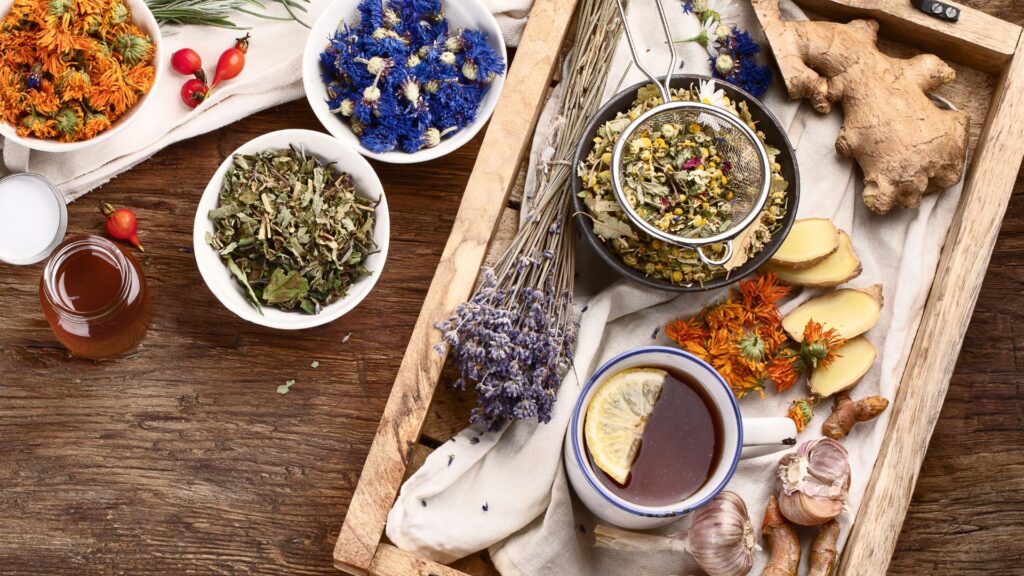
Summer is the time for scorching heat in most parts of India. The traditional way to be healthy in every season is to live by nature and alter your diet to suit your body type. A variety of plants grow in India and there are abundant of them with therapeutic and medicinal value. If you have good knowledge of these, you can easily sail through all common summer ailments.
During the scorching Indian summers, several common ailments tend to surface due to the intense heat and humidity. Heatstroke is one of the most prevalent, characterized by symptoms like dizziness, rapid heartbeat, and profuse sweating. Dehydration is another widespread issue, as people often fail to consume an adequate number of fluids to replenish what is lost through sweating.
Skin problems such as sunburns, rashes, and prickly heat are also common due to prolonged exposure to the sun. Gastrointestinal issues like food poisoning become more frequent during this season, mainly due to the rapid spoilage of food in the heat.

Let us see how we can manage these issues in summer with some simple plant-based herbal remedies :
Heatstroke: To prevent heatstroke, staying hydrated is crucial. Drinking beverages infused with cooling herbs like khus, coriander, and fennel can help. A traditional remedy is to consume a mixture of cumin seeds (jeera), coriander seeds (dhania), and sugar dissolved in water. Mint leaves have a cooling effect on the body and are often used to prepare refreshing drinks like mint lemonade or mint tea. Eucalyptus has a cooling sensation when applied topically or inhaled, which can be soothing for summer ailments like heat-induced headaches. Sandalwood paste is applied to the forehead and other parts of the body to cool down the body temperature during summer.
Dehydration: Coconut water is an excellent natural electrolyte replenisher. It helps in maintaining fluid balance and preventing dehydration. Other hydrating herbal drinks include aam panna (raw mango drink), kokum sherbet, shikanji (fresh lemonade), and buttermilk (chaas), seasoned with roasted cumin powder and mint leaves.
Digestive Issues: Digestive problems like indigestion and acidity are common during summer. Herbal remedies such as drinking a concoction of cumin (jeera) water or fennel seeds (saunf) soaked in water overnight can aid digestion. Fresh ginger tea is also effective in relieving indigestion and bloating. Mint leaves also help digestion and are commonly used in chutneys in summer. Amla and bael fruit are extremely helpful in digestion. Bael juice is a very refreshing summer drink. Curry leaves frequently used in food preparation also support digestion. Coriander seeds or leaves are used in various Indian dishes, and coriander water is often consumed during summer to cool down the body and aid digestion. Fennel seeds are known for their digestive properties and are often chewed after meals to aid digestion.
Skin Irritations and Sunburns: Aloe vera gel is known for its soothing and cooling properties, making it effective for treating sunburns and skin irritations caused by excessive heat. can break open a fresh aloe vera leaf and apply the gel directly to the sunburned skin. Neem leaf paste can also be applied to the affected area to reduce inflammation and promote healing. Sandalwood paste is also used in skincare to soothe sunburns and rashes or prickly heat, which are common during summer. Rose water is also commonly used in Indian households as a natural coolant for the skin.
Prickly Heat: To alleviate prickly heat rashes, applying sandalwood paste mixed with rose water or applying a paste of crushed neem leaves can be helpful. These natural remedies have cooling and anti-inflammatory properties that soothe the skin and reduce itching.
Insect Bites and Stings: Summer is also a time for insect breeding. Basil leaves (tulsi) have anti-inflammatory and anti-bacterial properties that can provide relief from insect bites and stings. Crush a few basil leaves and apply the juice to the affected area for relief from itching and inflammation. Neem leaves are known for their anti-bacterial and anti-inflammatory properties. Neem water or neem paste is applied topically to soothe skin irritations. Rubbing a freshly cut slice of onion does wonders for a bee or wasp sting. The pain quickly diminishes and it heals quickly.
Fatigue and Weakness: To combat fatigue and weakness during summer, consuming herbal drinks like sharbat-e-badam (almond syrup), sharbat-e-sandal (sandalwood syrup), or shikanji (lemonade) with a pinch of black salt can provide a refreshing boost of energy. Aam panna made with raw mangoes is not only tasty but extremely refreshing and digestive. Rose leaf extract is also used in drinks (gulab sharbat) as it has cooling properties. Khus sharbat made from extract of vetiver grass roots is also an extremely refreshing drink.
Cold, cough, and respiratory issues: Eucalyptus leaves contain compounds that have mucolytic properties, meaning they help break down mucus and relieve congestion. Inhaling steam infused with eucalyptus leaves can ease symptoms of respiratory conditions such as asthma, bronchitis, or sinusitis. Tulsi and ginger tea are commonly consumed to boost immunity. Tulsi juice mixed with ginger juice is used to protect against various summer ailments like cough and cold.
For immunity and detoxification: In summer it is important to strengthen your immunity and detoxify your system to improve metabolism. Amla and lemon are rich in Vitamin C and known for their immunity-boosting properties. They are rich in antioxidants and aid digestion. If fresh amla is not available amla powder mixed with water is commonly consumed during summer. Anantmool is known for its cooling properties and is often used to prepare herbal teas or decoctions during summer to detoxify the body and purify the blood. It has anti-inflammatory and diuretic properties too. The root of the plant is primarily used in herbal preparations. Turmeric also helps in boosting immunity. Consuming turmeric milk or adding turmeric to meals can help in maintaining overall health during the summer.
Dengue and Malaria: Vector-borne diseases also increase in summer. Neem and tulsi are used for their anti-bacterial properties. Tulsi also helps in reducing fever. Papaya leaf extract is known for its ability to increase platelet count, crucial in dengue treatment where platelet levels often drop significantly. Giloy, is renowned for its antipyretic and anti-inflammatory properties, aiding in reducing fever and inflammation associated with these diseases.